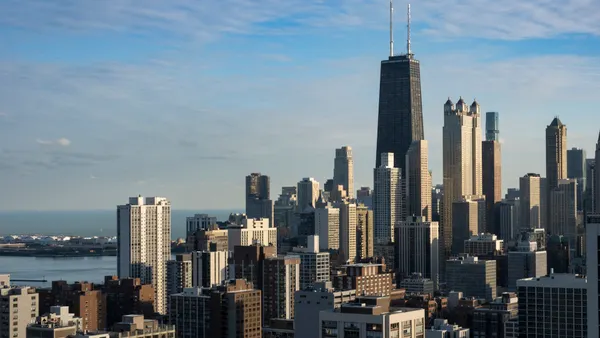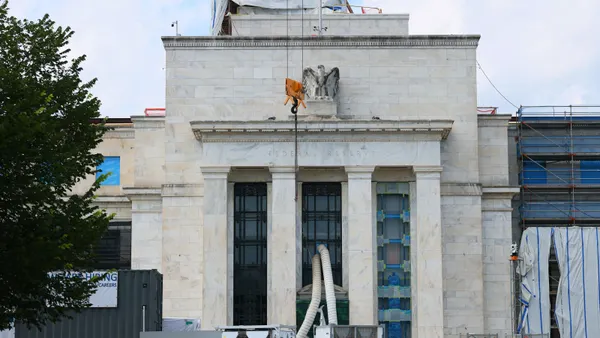The nation’s two largest banks have each flagged President Donald Trump’s August executive order targeting debanking as an issue to watch in their latest quarterly filings with the Securities and Exchange Commission.
JPMorgan Chase “is responding to requests from government authorities and other external parties regarding, among other things, the Firm’s policies and processes and the provision of services to customers and potential customers,” the bank wrote in the filing published Tuesday. “Certain of these matters are at various stages, including reviews, investigations and legal proceedings.”
The August order, by its text, aims to root out “unacceptable practices” Trump asserts some banks have taken to restrict some conservative-aligning individuals from accessing financial services.
The order calls out Biden-era regulators it alleges “used supervisory scrutiny and other influence over regulated banks to direct or otherwise encourage politicized or unlawful debanking activities.”
More pointedly, Trump himself – within a week of retaking office in January – publicly accused Bank of America and JPMorgan Chase of debanking conservatives in a tangential response to a question from BofA CEO Brian Moynihan.
Moynihan, on stage at the World Economic Forum in Davos, Switzerland, asked Trump how an early wave of executive orders might affect gross domestic product, reduce inflation and boost stock prices.
“You’ve done a fantastic job, but I hope you start opening your bank to conservatives, because many conservatives complain that the banks are not allowing them to do business within the bank, and that included a place called Bank of America,” Trump said. “I don’t know if the regulators mandated that because of [former President Joe] Biden or what, but you and [JPMorgan Chase CEO] Jamie [Dimon] and everybody, I hope you’re going to open your banks to conservatives because what you’re doing is wrong.”
A Bank of America spokesperson at the time said, “We never close accounts for political reasons and don’t have a political litmus test.”
The spokesperson added that the bank would be “engaging with the administration and Congress regarding the extensive government regulations that sometimes result in decisions to exit client relationships.”
The Charlotte, North Carolina-based lender issued its own notice Friday regarding Trump’s August debanking order.
Bank of America is “responding to demands and requests regarding ‘fair access to banking,’ including those resulting from [the August order], which directed government agencies to review financial institutions’ policies and practices for providing, maintaining, or discontinuing financial products or services to certain clients or potential clients,” it wrote in its quarterly filing with the SEC.
Trump has shown a willingness to target banks by using more than words, too. The president’s family sued Capital One in March, alleging the lender closed Trump Organization accounts shortly after the Jan. 6, 2021 Capitol insurrection “because [the bank] believed that the political tide at the moment favored doing so,” according to a complaint filed in Miami-Dade Circuit Court.
A Capital One spokesperson at the time said the bank “has not and does not close customer accounts for political reasons.”
For their part, regulators including the Office of the Comptroller of the Currency, Federal Deposit Insurance Corp. and Federal Reserve, have moved to cut reputational risk from among the factors bank examiners use to evaluate banks.
Lawmakers, too, have introduced at least one measure to ensure regulators phase out reputational risk.
JPMorgan’s SEC filing cited that Trump’s August order “directed several actions by certain federal agencies, to include a review and revision of their internal policies and manuals.”
That perhaps could lead to the kind of backtracking the finance sector saw in February, when the nation’s biggest banks, one by one, reframed or cut out altogether, passages in their manuals pertaining to diversity, equity and inclusion – against which Trump also issued an early-term executive order.
Comptroller Jonathan Gould, in a conference appearance Tuesday, said OCC examiners were checking whether major U.S. banks had dropped policies that discouraged offering services to industries such as firearms.
Citi in June noted that it had abandoned a policy – dating back to the wake of the Parkland, Florida, school shooting – restricting firearms sales by its retail clients.












